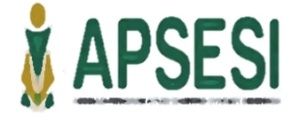Halal Awareness Behavior of Producers and Consumers from Maqashid Sharia Perspective
Abstract
The growth of the global Muslim population, especially in Indonesia, which has the largest Muslim population, must be balanced with the Muslim community's awareness of halal products. This research aims to analyze the influence of Islamic principles on the awareness of producers and consumers in the production and consumption of Halalan Thayyiban products in Indonesia after the implementation of Law Number 33 of 2014 concerning Halal Product Guarantees. Using qualitative methods with a psychological approach, data was collected from documentary sources such as the Internet, journals, books, laws, and articles. The research findings demonstrated that Islamic principles significantly influenced consumer and producer awareness and behavior within the context of halal products. Specifically, the safeguarding of religion, life, lineage, property, and intellect had notably heightened manufacturers' adherence to halal standards while simultaneously enhancing consumer consciousness regarding the importance of products that are safe, hygienic, and of superior quality. These conclusions emphasized that the integration of Islamic principles not only facilitated compliance with Sharia law but also elevated the quality and safety experienced by consumers, ultimately aligning with the attainment of the Halalan Thayyiban concept.
Keywords
Full Text:
PDFReferences
Abu Bakar, M., & Abdul Rahim, A. K. (2021). Maqasid Al-Shariah Theory: A Comparative Analysis Between The Thoughts Of Al-Shatibi And ‘Izz Al-Din Ibn ‘Abd Al-Salam. International Journal of Academic Research in Business and Social Sciences, 11(8), 180–193.
Ahmad, N. A., Abaidah, T. N., & Yahya, M. H. A. (2013). A study on halal food awareness among Muslim customers in Klang Valley. The 4th International Conference on Business and Economic Research (4th Icber 2013) Proceeding, 1074, 17–30.
Ahmad, R. , et al. (2020). The Role of Maslahah in Contemporary Islamic Jurisprudence: A Comparative Perspective. International Journal of Islamic Studies, 15(3), 275-290.
Al-Dhuhaib, S., & Al-Kandari, A. (2020). Halal certification awareness and consumers’ purchase intention towards Halal food products in Kuwait: An application of the theory of planned behavior. Journal of Islamic Marketing, 11(5), 1474–1492.
Al-Ghazali. (1412). al -Mustasfa min Ilm al –Usul (Vol. 1). al –al-Amiriyah.
Al-Shatibi. (n.d.). (n.d.). Al-Muwafaqat fi Usul al-Shari’ah. Dar al-Ma’rifah.
Ambali, A. R., & Bakar, A. N. (2014). People’s Awareness on Halal Foods and Products: Potential Issues for Policy-makers. Procedia - Social and Behavioral Sciences, 121, 3–25. https://doi.org/10.1016/j.sbspro.2014.01.1104
Awan, H. M., Siddiquei, A. N., & Haider, Z. (2015). Factors affecting Halal purchase intention–evidence from Pakistan’s Halal food sector. Management Research Review, 38(6), 640–660.
Bugha, M. D. Al. (1991). Al Wafi Syarah Kitab Arba‟in an-Nawawi. Kuwait: Daar Ilm.
Fathoni, M. A. (2021). Kesadaran Konsumen Terhadap Makanan Halal di Indonesia. Buku Monograf, 28.
He, W., Goodkind, D., Kowal, P., Almasarweh, I. S., Giang, T. L., Islam, M. M., Lee, S., Teerawichitchainan, B., & Tey, N. P. (2022). Asia aging: demographic, economic, and health transitions. US Department of Commerce, Washington, DC, USA, Report, P95/22, 1.
Johnson, T. M. (2019). The Rise of Global Christianity and Theological Education. TORCH TRINITY Journal, 22(1), 7–51.
Maharani, J. (2022). Pemikiran Ibnu Asyur Tentang Maqashid Syariah Dalam Ekonomi Kontemporer. Jurnal Ilmiah Ekonomi Islam, 8(3), 2495–2500.
Purnama Sariati, N. (2019). Lifestyle generasi millenial dalam kerangka pasar ekonomi halal. Istithmar, 3 (2).
Purwanto, A., Haque, M. G., Sunarsi, D., & Asbari, M. (2021a). The role of brand image, food safety, awareness, certification on halal food purchase intention: An empirical study on Indonesian consumers. Journal of Industrial Engineering & Management Research, 2(3), 42–52.
Purwanto, A., Haque, M. G., Sunarsi, D., & Asbari, M. (2021b). The role of brand image, food safety, awareness, certification on halal food purchase intention: An empirical study on Indonesian consumers. Journal of Industrial Engineering & Management Research, 2(3), 42–52.
Rosia, A. (2018). The Concept Of Maslahah According To Imam Al-Ghazali Tarmizi Institut Agama Islam As’adiyah Sengkang. Journal of Islamic Legal Studies, 5(2), 45–62.
Sherwani, M., Ali, A., Ali, A., Hussain, S., & Zadran, H. G. (2018). Determinants of Muslim consumers’ Halal meat consumption: applying and extending the theory of planned behavior. Journal of Food Products Marketing, 24(8), 960–981.
DOI: http://dx.doi.org/10.30984/tjebi.v9i1.3149
Article Metrics
Abstract view : 593 timesPDF - 336 times
Refbacks
- There are currently no refbacks.
Copyright (c) 2024 Tasharruf: Journal Economics and Business of Islam
License URL: https://creativecommons.org/licenses/by-nc/4.0/
Tasharruf: Journal Economics and Business of Islam is indexed by:
 |
 |
 |
 |
 |
|
 |
 |

This work is licensed under a Creative Commons Attribution-NonCommercial 4.0 International License.
________________________________________________________
Tasharruf: Journal Economics and Bussiness of Islam is published by Fakultas Ekonomi dan Bisnis Islam, Institut Agama Islam Negeri (IAIN) Manado
Jl. Dr. S. H. Sarundajang Kawasan Ring Road I Malendeng Manado, Sulawesi Utara, Indonesia 95128
Email: [email protected]
ISSN Print: 2528-0317 ISSN Online: 2528-0325












1.png)


